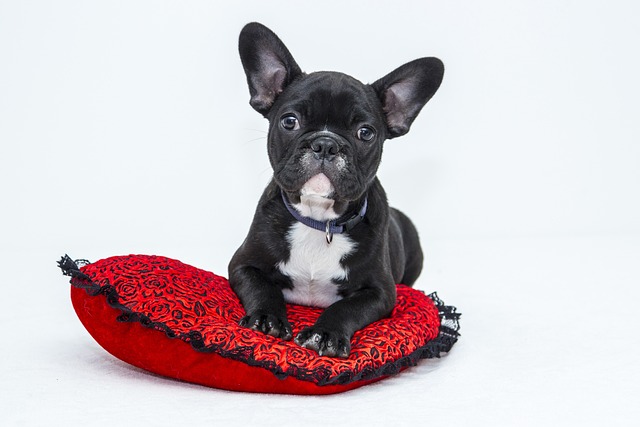
How do i train my dog to be obedient?
Watching your dog dart across the park ignoring your calls isn’t just frustrating—it can put them at risk near busy streets or public spaces.
When should my puppy be fully potty trained? If you’re a new pup parent staring at a pee-stained rug, this question is probably keeping you up at night. The short answer: most puppies get there between 4 and 6 months old, but don’t panic if your fuzzy friend takes a bit longer. Just like kids, puppies mature at their own pace—factors like breed, size, and consistency in training play big roles. A Chihuahua might lag a few weeks behind a Golden Retriever, thanks to their tiny bladder, and that’s totally normal.
Understanding the biology helps. Puppies aren’t being “bad” when they have accidents—their bladders simply aren’t ready. Before 12 weeks, a puppy’s bladder is about the size of a marble; they can hold it maybe 30 minutes tops. By 16 weeks, that stretches to 2-3 hours, and by 6 months, many can go 4-6 hours between potty breaks. Think of it like a toddler learning to use the toilet—muscles and focus take time to develop. Rushing the process only leads to frustration for both of you.
Consistency is your secret weapon. Start by syncing potty breaks with their daily rhythm: right after waking up, 10-15 minutes after meals, and after playtime. Take them to the same spot each time—smell memory is powerful for pups. When they go, celebrate like it’s a holiday: a tiny treat, excited “good girl!” and a quick pet. My neighbor’s Shih Tzu, Lola, learned in 5 months because they stuck to this routine, even on rainy mornings. Skipping a session? That’s when accidents happen.
 Skip the scolding—seriously. Yelling or rubbing their nose in it (yes, people still try this) confuses them. They won’t connect the punishment to the accident hours later; they’ll just learn to fear you. Last month, a client felt guilty after scolding her Beagle pup—turns out, he was peeing indoors because a urinary tract infection hurt. Positive reinforcement builds trust; fear builds secrecy. If you catch them mid-accident, calmly scoop them up and move to the potty spot—no drama.
Skip the scolding—seriously. Yelling or rubbing their nose in it (yes, people still try this) confuses them. They won’t connect the punishment to the accident hours later; they’ll just learn to fear you. Last month, a client felt guilty after scolding her Beagle pup—turns out, he was peeing indoors because a urinary tract infection hurt. Positive reinforcement builds trust; fear builds secrecy. If you catch them mid-accident, calmly scoop them up and move to the potty spot—no drama.
Local rules matter, too. In most U.S. cities, leaving your pup’s mess on the sidewalk can cost $50-$200 in fines—always carry bags, even in your own yard. And don’t take them to public parks until their vet signs off on vaccines (usually around 16 weeks). Apartment dwellers? Time those potty trips to avoid early-morning or late-night noise—nothing irks neighbors like a yipping pup at 6 a.m. in the hallway.
Some pups need extra time, and that’s okay. Rescue puppies or those with inconsistent early lives might take 7-8 months. A friend’s rescue Border Collie, Max, had been outdoors 24/7 before adoption—he didn’t understand “inside vs. outside” at first. With patience (and a lot of treats), he nailed it by 7 months. If accidents spike after months of progress, check with your vet—UTIs or anxiety could be the culprit.
By 6 months, you should see a steady pattern: fewer accidents, purposeful signals (like circling or pawing at the door). Remember, “fully trained” doesn’t mean zero slip-ups—stress, a new home, or a missed meal can throw them off. What matters is progress, not perfection. Stick to the routine, cheer loud for successes, and respect the rules of your community. Before you know it, those rug cleanups will be a distant memory.

Watching your dog dart across the park ignoring your calls isn’t just frustrating—it can put them at risk near busy streets or public spaces.

New puppy owners often find themselves rushing to clean up accidents before they set in, and that’s where puppy pad training becomes a game-changer.

If you've noticed your dog's waistline disappearing and your veterinarian has mentioned those few extra pounds, your first instinct might be to simply reduce the amount of food in their bowl.

Training a dog to use a designated spot indoors isn’t as daunting as many new owners fear, but it does take consistency and an understanding of your pet’s needs.

That moment of dread on a walk is all too familiar for many new dog owners. You see another dog approaching down the sidewalk of your neighborhood

If the sight of another dog on your neighborhood walk makes your heart sink as your own dog erupts into a frenzy of barking and lunging, you're not alone.